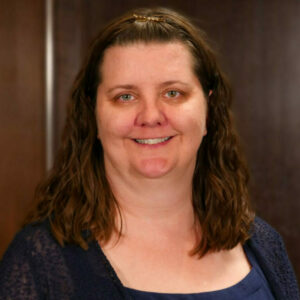Family physician Dr. Christine Ellis recently joined RhPAP’s Board of Directors, representing one of the Alberta Health Services’ (AHS) seats on the board. In conversation with Rural Health Beat coordinator, Lorena Franchuk, Dr. Ellis reflected on her medical career, the critical role of rural healthcare, and the support she received as a medical student from RhPAP in the form of accommodation, grants and career development.
 LF: Where did you study to become a physician and when did you start practising?
LF: Where did you study to become a physician and when did you start practising?
CE: I did medical school at the University of Alberta and then completed the U of A Rural Family Medicine Residency based in Grande Prairie. I started practising in 2007 in Rimbey weeks after completing my residency.
LF: In what capacity do you currently practise?
CE: Clinically, I am a rural generalist. I provide community family medicine and do emergency medicine, acute care and long-term care at Rimbey Hospital. Along with my colleagues, I teach medical students and residents. I do some practice management and leadership at my clinic. I also have medical leadership roles within Alberta Health Services as the Facility Medical Director in Rimbey and an Associate Zone Medical Director in Central Zone.
LF: You grew up in Neerlandia, a hamlet near Barrhead, northwest of Edmonton. Did your rural roots influence your decision to become a physician?
CE: Not specifically to become a physician, but definitely to be a rural physician. My dad was a teacher and my mom was a nurse and they emphasized going on to secondary education, but not specifically the direction that I should take. We lived on a farm so I have an appreciation and understanding of the lifestyle, which helps me relate to my patients and understand a lot of their struggles and lifestyle.
LF: Do you think a rural background helps you do a better job as a rural physician?
CE: Yes, I think so. When you’re part of a small community, you care about the community and that caring influences how you work. I’m not saying that urban doctors don’t care but there is an immersion that you can’t separate from in rural. There are times where I just want to be a person in the crowd that nobody knows, but at the same time, there is something special about being a known and respected person in the community.
LF: What are some of the highlights?
CE: Establishing long-term, trusting relationships with your patients. Being able to look after people in the hospital and in the community. It is awesome helping people through difficult things – it’s not something everyone gets to do. I tell patients it’s their first time but it’s not mine, and that’s a real privilege. Making a positive impact on patients by helping them understand a difficult diagnosis and process even when the outcome isn’t good.
LF: Why did you join the RhPAP Board of Directors?
CE: I was appointed by AHS. The promotion of rural health is incredibly important, and RhPAP is another avenue to do this. Rural practitioners are not always consulted or involved in big decision making in the system. There’s a lack of knowledge of how what we do is different than what happens in big urban centres and sometimes even a dismissal of what is done because it’s not the same. I’m not saying one is better or worse, it’s that what we do is different and needs recognition as valuable, challenging and incredibly worthwhile for our patients.
LF: How does your position with AHS tie into your work with RhPAP?
CE: I bring a knowledge of AHS, how AHS works and understanding of what’s going on with some of the things at AHS that is more practical and clinical.
LF: How can you influence rural medicine through your rural physician experience, leadership roles and as a RhPAP director?
CE: I bring an honest, realistic voice from a hardworking rural practitioner about my experience. What are the challenges that we have? How do changes and policies affect us? I see my job as being vocal in a constructive way, in the reality of what we do and how we do it. This is how these decisions will affect what we do, be it good or bad, to help create policy that works in rural too.
LF: Why is rural healthcare so important to you?
CE: These are my people, it’s who I am. These people deserve excellent quality healthcare just like every other person in the province.
